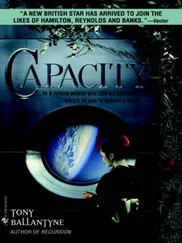Europeans were confronted with an apparently straightforward dilemma: what would happen if (when?) there weren’t enough young people working to cover the costs of a burgeoning community of retired citizens, now living much longer than in the past, paying no taxes and placing growing strain on medical services into the bargain? [410]One answer was to reduce retirement benefits. Another was to raise the threshold at which those benefits were paid—i.e. make people work longer before retirement. A third alternative was to extract more taxes from the pay packets of those still in work. A fourth option, only really considered in Britain (and then half-heartedly), was to imitate the US and encourage or even oblige people to turn to the private sector for social insurance. All of these choices were potentially politically explosive.
For many free-market critics of Europe’s welfare states, the core problem facing Europe was not demographic shortfall but economic rigidity. It wasn’t that there weren’t, or wouldn’t be, enough workers—it was that there were too many laws protecting their salaries and their jobs, or else guaranteeing such elevated unemployment and pension payments that they lacked all incentive to work in the first place. If this ‘lab our-market inflexibility’ were addressed and costly social provisions reduced or privatized, then more people could enter the workforce, the burden on employers and taxpayers would be alleviated, and ‘Eurosclerosis’ could be overcome.
As a diagnosis this was both true and false. There was no question that some of the rewards of the welfare state, negotiated and locked into place at the peak of the post-war boom, were now a serious burden. Any German worker who lost his or her job was entitled to 60 percent of their last wage packet for the next thirty-two months (67 percent if they had a child). After that the monthly payments fell to 53 percent (or 57 percent) of their last wage packet—indefinitely. Whether this safety net discouraged people from seeking paid work was unclear. But it came at a price. A penumbra of regulations designed to protect the interests of employed workers made it hard for employers in most EU countries (notoriously France) to sack full-time workers: their consequent reluctance to hire contributed to stubbornly high rates of youth unemployment.
On the other hand, the fact that they were highly regulated and inflexible by American standards did not mean that Europe’s economies were necessarily inefficient or unproductive. In 2003, when measured in terms of productivity per hour worked, the economies of Switzerland, Denmark, Austria and Italy were all comparable to the US. By the same criterion Ireland, Belgium, Norway, the Netherlands and France ( sic ) all out-produced the US. If America was nevertheless more productive overall—if Americans made more goods, services and money—it was because a higher percentage of them were in paid jobs; they worked longer hours than Europeans (three hundred more hours per year on average in 2000); and they had far fewer and shorter holidays.
Whereas the British were legally entitled to 23 paid vacation days annually, the French to 25 and the Swedes to 30 or more, many Americans had to settle for less than half as much paid vacation, depending where they lived. Europeans had made a deliberate choice to work less, earn less—and live better lives. In return for their uniquely high taxes (another impediment to growth and innovation, in the eyes of Anglo-American critics) Europeans received free or nearly free medical services, early retirement and a prodigious range of social and public services. Through secondary school they were better educated than Americans. They lived safer and—partly for that reason—longer lives, enjoyed better health (despite spending far less [411]) and had many fewer people in poverty.
This, then, was the ‘European Social Model’. It was without question very expensive. But for most Europeans its promise of job security, progressive tax rates and large social transfer payments represented an implicit contract between government and citizens, as well as between one citizen and another. According to the annual ‘Eurobarometer’ polls, an overwhelming majority of Europeans took the view that poverty was caused by social circumstances and not individual inadequacy. They also showed a willingness to pay higher taxes if these were directed to alleviating poverty.
Such sentiments were predictably widespread in Scandinavia. But they were almost as prevalent in Britain, or in Italy and Spain. There was a broad international, cross-class consensus about the duty of the state to shield citizens from the hazards of misfortune or the market: neither the firm nor the state should treat employees as dispensable units of production. Social responsibility and economic advantage should not be mutually exclusive—‘growth’ was laudable, but not at all costs.
This European model came in more than one style: the ‘Nordic’, the ‘Rhineland’, the ‘Catholic’, and variations within each. What they had in common was not a discrete set of services or economic practices, or a particular level of state involvement. It was, rather, a sense—sometimes spelled out in documents and laws, sometimes not—of the balance of social rights, civic solidarity and collective responsibility that was appropriate and possible for the modern state. The aggregate outcomes might look very different in, say, Italy and Sweden. But the social consensus they incorporated was regarded by many citizens as formally binding—when, in 2004, the Social Democratic Chancellor of Germany introduced changes in the country’s welfare payments, he ran into a firestorm of social protest, just as a Gaullist government had done ten years earlier when proposing similar reforms in France.
Ever since the 1980s there had been various attempts to resolve the choice between European social solidarity and American-style economic flexibility. A younger generation of economists and entrepreneurs, some of whom had spent time in US business schools or firms and were frustrated at what they saw as the inflexibility of the European business environment, had impressed upon politicians the need to ‘streamline’ procedures and encourage competition. The aptly named ‘Gauche Américaine’ in France set out to release the Left from its anti-capitalist complex while retaining its social conscience; in Scandinavia, the inhibiting effect of high taxation was discussed (if not always conceded) even in Social Democratic circles. The Right had been brought to acknowledge the case for welfare; the Left would now recognize the virtues of profit.
The effort to combine the best of both sides overlapped, not coincidentally, with the search for a project to replace the defunct debate between capitalism and socialism that had formed the core of Western politics for over a century. The result, for a brief moment at the end of the 1990s, was the so-called ‘Third Way’: ostensibly blending enthusiasm for unconstrained capitalist production with due consideration for social outcomes and the collective interest. This was hardly new: it added little of substance to Ludwig Erhard’s ‘Social Market economy’ of the 1950s. But politics, especially post-ideological politics, is about form ; and it was the form of the Third Way, modeled on Bill Clinton’s successful ‘triangulation’ of Left and Right and articulated above all by New Labour’s Tony Blair, which seduced observers.
Blair, of course, had certain advantages unique to his time and place. In the UK, Margaret Thatcher had moved the political goalposts far to the Right, while Blair’s predecessors in the Labour leadership had done the hard work of destroying the Party’s old Left. In a post-Thatcher environment, Blair could thus sound plausibly progressive and ‘European’ merely by saying positive things about the desirability of well-distributed public services; meanwhile his much-advertised admiration for the private sector, and the business-friendly economic environment his policies sought to favour, placed him firmly in the ‘American’ camp. He spoke warmly of bringing Britain into the European fold; but insisted nonetheless on keeping his country exempt from the social protections of European legislation and the fiscal harmonization implicit in the Union’s ‘single market’.
Читать дальше












